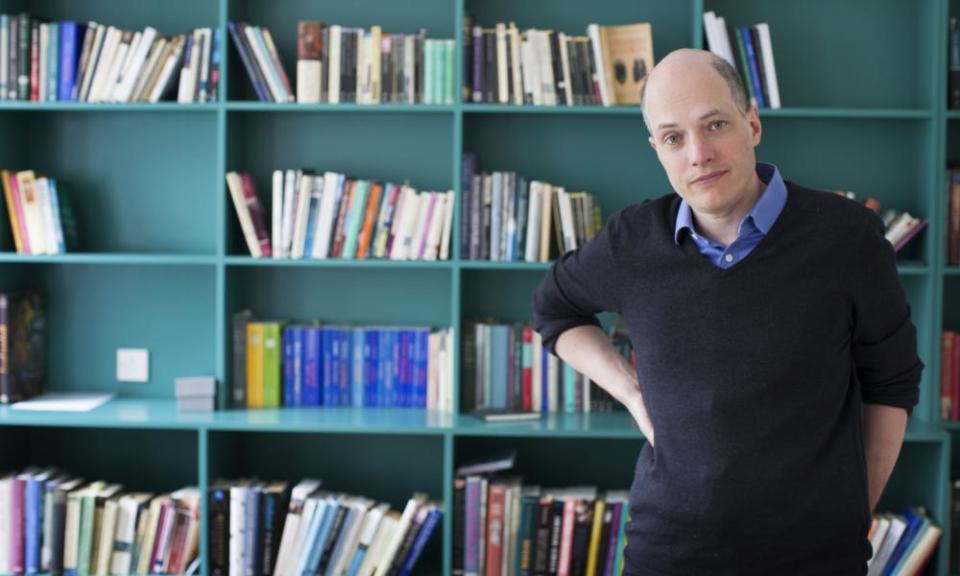YouTube challenges BBC with educational shows for UK viewers

YouTube has stepped on the BBC’s toes by commissioning a series of educational programmes aimed at British audiences, partly in an attempt to improve the site’s image following a run of negative press.
YouTube Originals has ordered programmes on the fall of the Berlin Wall, a science series fronted by the former T4 presenter Rick Edwards and a philosophy series from a business founded by Alain de Botton, as the company increasingly blurs the lines between an online platform and a traditional broadcaster.
Asked whether the decision to focus on public service material was a response to media criticism, YouTube’s head of original content, Susanne Daniels, said: “The short answer would be yes.” She insisted though that it also reflected what was popular on the site: “YouTube users love educational content,” she said.
The programmes are among the first new commissions since YouTube gave up its attempts to charge users to watch specially-commissioned television-standard shows and cancelled many scripted dramas and comedies that had struggled to make an impact. The company, which is owned by Google, accepted that it was unable to compete with subscription streaming companies such as Netflix that have positioned themselves as high-end products and are willing to sink tens of millions of pounds into a single production.
“We took a look at the landscape and we looked at how everyone in the industry was launching [subscription] services and we thought about our core strengths and our 2 billion unique users a month,” Daniels said. Under the new plan YouTube will continue to commission professional programmes under its Originals banner, but will act more like a traditional broadcaster, selling adverts during popular shows and hoping to capitalise on the site’s enormous reach.
Viewers will still be offered the option to pay extra if they want to remove adverts, access behind-the-scenes content and get advance access to a series, a model described as giving users the option to “pay with their wallets or with their attention”.
YouTube increasingly dominates video viewing among young Britons. The average 18- to 34-year-old spends more than an hour a day on the site. Daniels, however, said many people who had become stars on YouTube over the past decade still needed support in making more ambitious full-length programmes.
Related: YouTube to adjust UK algorithm to cut false and extremist content
“I have found that YouTubers, who are a tireless and enthusiastically passionate group, need our help,” she said. “They will tend toward the same type of content and they are limited as to their ability to make a show with more scope, even if they’ve got followers and sponsors they’re still limited with budget and access.”
Daniels also explained how she used YouTube’s data to inform commissioning decisions, particularly in identifying classic shows that could be worthy of a reboot for younger audiences. She commissioned the flagship YouTube Originals show Cobra Kai, a Karate Kid spin-off series, partly because the data showed there was already an audience for it: “I knew from our internal data that Karate Kid is content that really interested our heavy users,” she said.
When the same production company approached her with a pitch for a YouTube Originals reboot of the 1990s sitcom Mad About You, she looked at the data and found there was little pre-existing interest, so passed.
YouTube has been hit with wave after wave of bad press, particularly in the UK, as it struggles to police the millions of hours of user-generated content uploaded every day. Daniels, a former MTV executive, said there were parallels with other parts of the entertainment industry: “I’ve been in the television business for a long time. There’s always issues with talent at every place. Look what happened with ABC and Roseanne recently, and they had to retool the whole show and take her out of it. That’s just something that’s par for the course.”

 Yahoo Finance
Yahoo Finance 